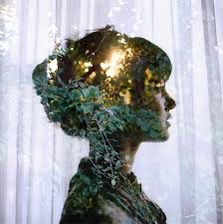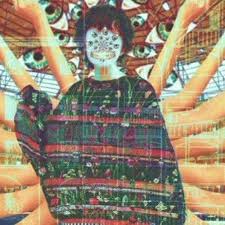Some part of the individual is aware of the most minute portions of breath; some part knows immediately of the most minute particle of oxygen and other components that enter the lungs. The thinking brain does not know. Our all-important ‘I” does not know. In actuality, my dear Blog reader, the all-important ‘I’ does know. We do not know the all-important ‘I’, and that is our difficulty
It is fashionable in our time to consider man/woman as the product of the brain and an isolated bit of the subconscious, with a few other odds and ends thrown in for good measure. Therefore, with such an unnatural division, it seems to man/woman that he/she does not know itself.
He/she says, ‘I’ breathe, but who breathes, since consciously I cannot tell myself to breathe or not to breathe?’ He/she says, ‘I dream.’ He/she cuts himself/herself in half and then wonders why he/she is not whole. Man/woman have admitted only those things he/she could see, smell, touch or hear; and in so doing, he/she could only appreciate half of himself/herself. And when I say half, I exaggerate; he/she is aware of only a third of himself/herself.
If man/woman dot not know who breathes within him/her, and if man/woman does not know who dreams within him/her, it is not because there is one self who acts in the physical universe and another who dreams and breathes. It is because he/she has buried the part of himself/herself which breathes and dreams. If these functions seem so automatic as to be performed by someone completely divorced from himself/herself, it is because he/she has done the divorcing.
The part of us who dreams is the ‘I’ as much as the part of us who operates in any other manner. The part of us who dreams is the part of us who breathes. This part of us is certainly as legitimate and necessary to us as a whole unitis, as the part who plays cards or dominos. It would seem ludicrous to suppose that such a vital matter as breathing would be left to a subordinate, almost completely divorced, poor-relative sort of a esser personality.
As breathing is carried on in a manner that seems automatic to the conscious mind, so the important function of transforming the vitality of the universe into patter units seems to be carried on automatically. But this transformation is not as recognize, and so it seems as if this transformation is carried on by someone even more distant than our breathing and dreaming selves.
We form the world of appearances as effortlessly and unconsciously as we breathe.
Because we know that we breathe, without being consciously aware of the mechanics involved, we are forced to admit that we do our own breathing. When we cross a room, we are forced to admit that we have caused oneself to do so, though consciously we have no idea of willing the muscles to move, or of stimulating one tendon or another. Yet even though we admit these things, we do not really believe them.
In our quiet unguarded moments, we still say, ‘Who breathes? Who dreams? Who moves?’ How much easier it would be to admit freely and wholeheartedly the simple fact that we are not consciously aware of vital parts of oneself and that we are more than we think we are.
Man/woman, for example, trusts himself/herself much more when he/she says, ‘I will read,’ and then he/she reads, than he/she does when he/she says, ‘I will see,’ and then he/sees. He/she remembers having learned to read, but he/she does not remember having learned to see, and what he/she cannot consciously remember, he/she fears.
The fact is that although no one taught him/her to see, he/she sees. The part of himself/herself that did ‘teach’ him/her to see still guides his/her movements, still moves the muscles of his/her eyes, still becomes conscious despite him/her when he/she sleeps, still breathes for him/her without thanks or recognition and still carries on his/her task of transforming energy from an inner reality into an outer one. Man/woman becomes trapped by his/her own artificially divided self.
It is true that, as a rule, we are not aware of our whole entity. There is no reason, however, why we must be blind to the whole self of our present personality, which is part of the entity, and which can be glimpsed in terms of the breathing and dreaming ‘self’ of which I have spoken.
It is convenient not to be consciously aware of each breath we take, but it is sheer stupidity to ignore the inner self which does the breathing and is aware of the mechanics involved. I have said that the mind is a part of the inner world, but we have access to our own minds, which we ignore; and this access would lead us inevitably to truths about outer the outer world. Working inward, we could understand the outward more clearly.


















